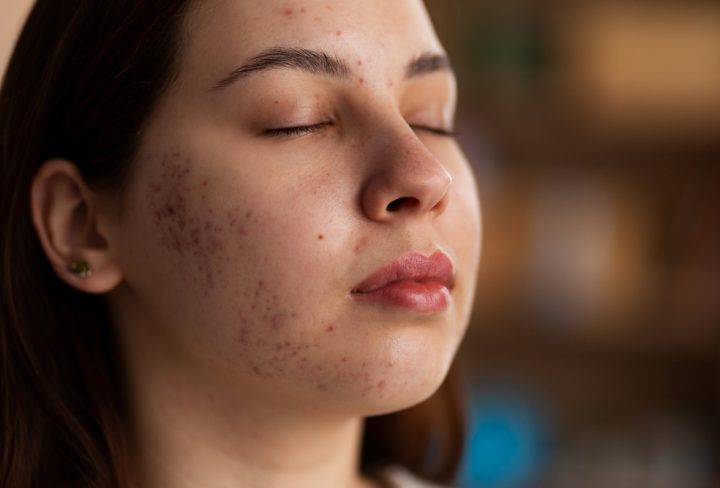Rosacea is a common skin condition that often goes unnoticed or misdiagnosed because it’s just seen as redness on the face. For some, it might lead to embarrassment or discomfort. Understanding rosacea triggers can be crucial for managing the condition effectively. Everyone’s rosacea triggers are different, so identifying yours is the key to reducing flare-ups. By knowing what sets off your symptoms, you can make informed choices about daily habits and environments.
Understanding Rosacea and Identifying Common Triggers
Rosacea often appears as redness or flushing on the face, especially on the cheeks and nose. Some people might experience small, red bumps or pimples, while others could have skin thickening. These symptoms can vary significantly among individuals, which makes understanding your specific rosacea triggers all the more important.
The common rosacea triggers include factors like:
- Sun exposure
- Stress
- Temperature changes (hot or cold)
- Certain foods and beverages like spicy foods and alcohol
The environmental rosacea triggers relate to elements outside your body, such as the weather or climate around you. For instance, excessive sun may worsen the redness for some. Meanwhile, diet-related triggers can be things like specific spices or too much caffeine. Each of these can play a role, but not everyone will be affected by them the same way.
As each person is unique, the aim is to figure out what sets your symptoms off. This way, you can develop a personalized plan to manage your condition. A good starting place is to pay attention to how your skin reacts to different conditions and keep a journal. This can help in identifying rosacea triggers effectively and making lifestyle adjustments.
Effective Strategies for Managing Rosacea Flare-ups
Stress-induced rosacea is a real concern, as stress can exacerbate symptoms. It’s important to manage stress through relaxation techniques like yoga or meditation. Even simple daily practices such as deep breathing can significantly lower stress levels.
A gentle skincare routine can make a big difference in keeping your skin calm and less reactive:
- Use a mild, non-abrasive cleanser. Avoid rubbing your face as it can irritate the skin.
- Moisturize daily to maintain skin hydration and protection.
- Always apply sunscreen before going out to guard against sun exposure and rosacea flares.
Diet-wise, some foods are known to worsen symptoms. It might be wise to:
- Avoid spicy foods, which can lead to flushing.
- Limit alcohol intake, as it’s a known trigger for many.
- Focus on incorporating more anti-inflammatory foods like salmon or leafy greens.
The climate also plays a role. In places with extreme hot or cold weather, seasonal rosacea triggers can cause problems. If you live in such regions, be mindful of your exposure to harsh elements. For instance, in a hot and humid country like India, staying indoors during the hottest part of the day and using fans or air conditioning can help.
Being aware of these aspects, you can construct a routine that reduces the likelihood of flare-ups. Prevention is usually the best approach when it comes to maintaining healthy and calm skin.
Innovations in Rosacea Treatment and Research
Medical advancements offer hope through new treatments designed to soothe rosacea. Prescription creams and oral medications might be helpful for some, offering significant symptom relief.
Recent studies on the skin microbiome present exciting possibilities. Researchers are exploring how the balance of bacteria on your skin affects rosacea. Maintaining a healthy microbiome might be a future approach to treatment.
Organizations like the National Rosacea Society work tirelessly, providing valuable support and funding research dedicated to better understanding the condition. In their efforts, they emphasize a holistic approach, considering factors from diet to emotional therapy for comprehensive care.
In managing rosacea, staying informed about these innovations and strategies can empower you to tackle the condition proactively. By combining medical insights with everyday adjustments, you can lead a life with fewer flare-ups and more comfort.

